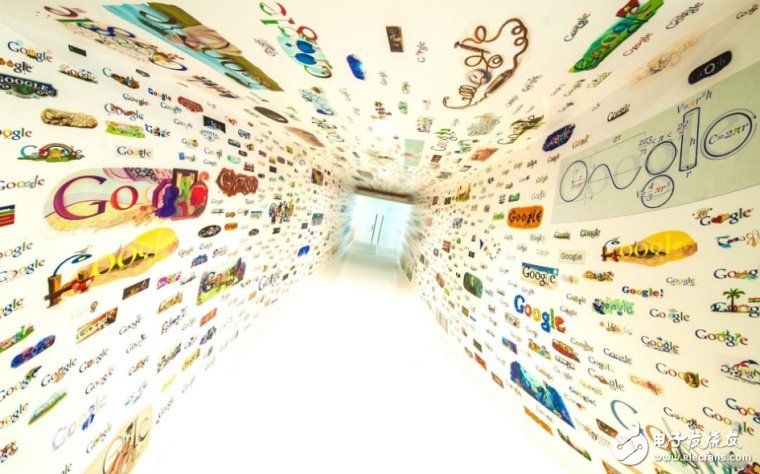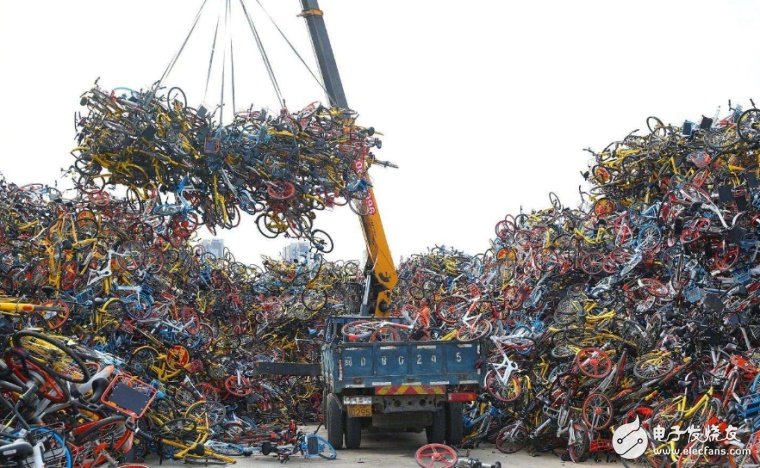How does blockchain make the Internet return to technological neutrality?
The Internet revealed that user data information of Huazhu’s hotels was traded on the dark web, and the leaked data involved 130 million people; a girl in Yueqing was raped and killed by a driver while riding a Didi Shunfeng, and Didi Dache was caught in a public opinion trial of “crime and punishmentâ€; Ziruo, Dan Shell has been condemned for raising the price of renting houses, causing public outrage; P2P Internet finance frequent thunderstorms conceal huge social risks...
What's wrong with the Internet?The changes brought to us by the Internet in the past 20 years are undoubtedly exciting and surprising. Even if it is full of pornography, violence, gambling, and criminal information, we still believe that the Internet is progressing. However, today, we have to face the fact that the Internet is moving towards closure, monopoly, degeneration, and abuse of private rights.
I still remember that the Internet once sang a declaration of freedom for us, and now he is moving towards centralization. Google’s slogan back then was "Don’t be evil," which reflected the terrifying side of the Internet’s power. Unfortunately, this Internet’s dogmatic preparations have been removed. Not only China, but the world’s dominance of the Internet is astonishing. The power of Internet companies is hidden by our side, and "moisturizing things silently" affects or controls elections, consumption, and travel.
1. Data hegemony, collecting "data tax"We have always believed that the Internet is equal, but we have been "paying taxes" like them. All data generated by the Internet is recorded in a centralized database. All your data on Facebook, Google, and Taobao are recorded by the server, but you, as the data producer, cannot save, control, and do nothing. What's even more hateful is that data has become the core resource of Internet giants, and they use it to produce powerful data hegemony and profits.

Almost all our actions on the Internet are recorded and analyzed in the form of "data". These big data can analyze your behavior preferences, consumption preferences, and even personality orientation, and then push all kinds of consumption, investment, and information. It almost controls where we go on the Internet, and it affects us in a nearly silent manner. Decision-making, even leading. They know when you need to buy which brand of toothpaste and medicine next month. If you change to a cheap brand, they will analyze whether you "consumption downgrade" and then help you match the secondary "consumption package." In GPS navigation, where to refuel the car, where you eat lunch, and whether the driving is stable are all dominated by data analysis. These data may even be used by financial institutions, and your auto loans, consumer loans, auto insurance, and life insurance may also be affected.
This year Facebook was caught in a "data breach scandal." The US Senate Commerce, Science and Transportation Committee (Senate Commerce, Science and Transportation Committee) and the Senate Judiciary Committee held a joint hearing against Facebook. Zuckerberg was besieged by a variety of sharp questions. One of the lawmakers asked "Facebook is eavesdropping on what users say?" Zuckerberg replied politely: "We allow users to upload and share their own videos. These videos are indeed There are voices, we will indeed record those voices and use the analysis of these voices to provide better services."
Sometimes we may not need to "provide better services", but only need to protect our privacy. We don't want you to know that my consumption is degraded, and we don't want to be manipulated by you. Data hegemony is like the dollar hegemony. The more a user uses it, the greater his power, the greater the amount of data, the greater the value of the data, and the more "data tax" charged. The more you rely on WeChat, JD.com, Gaode, and Didi Taxi, the more they "understand" you, and the more controlled your decisions will be. Many of our users are often "familiar with big data" and pay "data tax" almost every day.
2. Monopoly hegemony, hidden risks of "doing evil"Freedom is the gene of the Internet, and monopoly is the other side of its coin. The Internet, as an infrastructure, forms a monopoly pattern like the steel, railway, oil, telecommunications, tap water, aviation, automobile, and securities markets. Compared with trusts such as Rockefeller, Morgan, and Carnegie back then, the monopoly hegemony of giants such as Facebook, Google, Amazon, Tencent, and Alibaba is even worse.
Alibaba and Tencent have become huge monopoly empires. Tencent and Alibaba respectively control more than 400 companies and more than 250 companies. Their dominance has penetrated into transportation, finance, medical care, retail, housing, media and other fields. Among them, Tencent is representative of JD.com, Meituan, 58.com, and Ali has Ant Financial, Sina Weibo, Suning Cloud Business, and Cainiao.com.
Network effects have helped Internet companies quickly form a monopoly, forming a user scale in units of 100 million that covers the world. Facebook, Google, WeChat, Alipay and other platforms have more than hundreds of millions of traffic portals, and these traffic are then distributed to their networks to form a traffic cycle and a large database. This is a "winner takes all" game. Once a basic platform with hundreds of millions of traffic is formed, the entire industry ecology can be controlled.

What kind of adverse effects will such a strong monopoly position have on our lives? Two days ago, Trump publicly criticized Google's "tendency": Every search is all my negative news. Trump believes that Google and other institutions are suppressing the voice of the Conservative Party and selectively hiding information and news. They control what we can and cannot see. This is a very serious situation. "New York Times" reporter Adam Satariano said that Trump’s remarks may be based on comments made by the Fox Network host on Monday evening. They reported on a so-called "unscientific" project conducted by a conservative website. Research†shows that 96% of “Trump†search results on Google’s website come from so-called “left-wing websitesâ€. Google also responded on the 28th and denied any political leaning, "We have never manipulated people's political sentiments by sorting search results."
In the television era, television stations are an important channel for U.S. presidential candidates to gain support from voters. Today, the Internet is affecting election results. We have no evidence that Google manipulates search to influence political orientation, but if Google and Facebook really "do evil", American democracy will be challenged. We do not know whether WeChat chat, Baidu search, and Alipay payment are monitored. What's more serious is that if they "do evil", we know nothing and have no evidence, but this is obviously disturbing.
3. Financial hegemony hits the real economyOnce the Internet is combined with financial capital and then transferred to the real economy, the consequences will be disastrous. In China, the Internet is encumbering financial capital, under the banner of innovation, and aggressively marching into the real economy. With the trend of Cui Gula, it is a dimensional reduction blow to the real industry. The most typical example is shared bicycles. Bike-sharing is actually a car rental. After being put on the cloak of technological innovation and sharing economy by Internet companies, it has become China's "Four New Inventions". As a result, China’s major cities are full of colorful and jumbled shared bicycles everywhere, while the vast majority of car rental stores and many bicycle sellers died almost overnight.
Is it really the magic of technological innovation and sharing economy? Actually not. The Internet plus financial capital constitutes unfair competition to the real economy. This is the essence. Rental bicycles cannot be stacked at will, otherwise they will be taken away by the city management; while shared bicycles are randomly placed on the street. Although the city management also intervened later, should shared bicycles occupy public road resources, should they be charged? If a fee for occupying public resources is charged, shared bicycles will naturally not be able to eliminate car rental companies. In addition, does bike-sharing companies embezzle user deposits, does it constitute a crime? What happens if the owner of the car rental company takes the user deposit as his own and does not return it?
The government advocates that financial capital is free from the virtual and is intended to guide financial capital to serve the real economy. However, the bloodbath caused by Internet financial capital in the physical industry has even affected people's livelihood and caused public outrage. Internet rental platforms with financial capital in hand, grabbing rental housing at high prices, preferring to be vacant and maliciously raising rents, many people are forced to move out of Beijing's sixth ring road. P2P platforms, in the case of improper risk control, wantonly loans, even loans to college students, causing frequent social problems. There is also e-commerce. Many people say that physical stores also sell fakes, and Taobao sells fakes only to move the fakes to the Internet. In fact, this is a secret change. What if Wal-Mart and Wangfujing openly sell fakes like Taobao and Pinduoduo? It will inevitably encounter heavy penalties, so why can Taobao and Pinduoduo sell fake goods publicly? Another example is Didi Dache. Taxi companies pay more management and safety costs than Didi Dache under supervision. Why can Didi Dache ignore safety?
The Internet exercises financial hegemony, innovation privileges, and obtains various "immunities", which constitutes unfair competition. The Internet coerces financial capital to "do evil" in the real industry, financial capital is behind the scenes, and the Internet is a thug. The two jointly hunt down the real industry and cut the leek of the real economy, and then hype "big data", "new retail", and "blockchain" Wait for the concept to go public and cash out, leaving the real economy with feathers. Speculation in commodities is not terrible, nor is speculation in assets, the most fearful of speculation in companies and real industries.
Government supervision: the dilemma between technological innovation and "evil"The successive "evil" incidents of Internet companies have made many realize the terrible side of the Internet, especially the Internet + financial capital. Lifting the veil of Internet friendliness, what leaked out were bloody minions. We once believed that the state can supervise the Internet. But in fact, for fear of hindering technological innovation, almost all countries in the world take a tolerant attitude toward the Internet, or even condone it. The Guangdong Department of Communications stated that Didi refused to accept data access and accept supervision. For example, Pinduoduo used capital to reduce dimensionality to combat rapid expansion, and then went public with the concept of technological innovation to cash out. At present, financial capital has acquired pharmacies, retail stores, barber shops, training institutions, etc. on a large scale across the country, and then went public with the concept of "big data". This is an issue of financial hegemony, especially in China.

Another example is the issue of monopoly hegemony. Europe is the center of anti-monopoly. It has initiated multiple monopoly reviews against Microsoft and Google. However, the monopoly of the Internet does have its own particularities. On the one hand, the monopoly effect of the Internet is very obvious, on the other hand, its monopoly position is not completely reliable. Unlike railway, oil and other monopolies, Internet technology is iterating very fast. Once a giant loses the opportunity in the next generation of technological innovation, the monopoly market may collapse in an instant. Stronger than Microsoft, it is also declining under the challenge of Google and Facebook. As strong as the Tencent Empire, it almost missed WeChat and suffered a crisis of extinction. National supervision is necessary, but anti-monopoly methods are not good supervision methods.
Another example is the issue of data hegemony. Although the US Congressmen questioned Zuckerberg in every possible way, they seemed helpless because we couldn't find a better alternative. On May 25 this year, the EU’s GDPR (General Data Protection Regulation) was formally implemented. Although the bill only applies to European citizens, the impact is extremely far-reaching. The main content of the GDPR is about how citizens' data in the EU should be used by companies, introducing strict new rules to obtain people's consent for data processing. For consumer data, companies need to proactively ask consumers in a clear, clear and acceptable way. Consumers have the right to request organizations to delete their data. Consumers can learn how their data is collected, processed and analyzed. At the same time, they also have the right to obtain a copy of their data in a machine-readable manner so that the data can be taken elsewhere. It is undeniable that the GDPR is undoubtedly progressive, but it still cannot meet the requirements to ensure data security and not being used. Because data is stored in a centralized Internet database, how to define private data and public data? How to supervise data usage?
The government's contradiction in Internet supervision is similar to the management of the market economy. It is in a dilemma: Regardless, worry about technology "doing evil", manage, worry about hindering innovation. How to manage is another problem.
"Don't be evil", blockchain makes the Internet return to technological neutralityTechnology is innocent, technology is neutral; capital is innocent, capital is profit-seeking. However, we have to admit that the Internet is sick. The government cannot treat this disease.
Blockchain may be a good medicine.In the "Token Economy: Advanced Stage of Market Economy", regional media Locke believes that technology is actually resolving the contradiction between the market and the government, as well as the contradiction between efficiency and fairness. Blockchain, like the Internet, uses technical means to reduce information asymmetry, lower market transaction costs, expand market boundaries, reduce government intervention, improve the fairness of government regulation, reduce the rate of resource mismatches, and promote the role of price mechanisms . We have always emphasized that blockchain empowers the real economy, and "blockchain+" reconstructs the production relationship of the real industry. However, the most important and more difficult mission of the blockchain should be to "return the Internet to technological neutrality"!
The prescription of blockchain: one is distributed ledger (smart contract), and the other is token.

The blockchain network is a distributed ledger that no one can tamper with. Private digital assets or data are recorded in the ledger, which can completely realize the privatization of assets. "Yours is yours, and no one can take it." This progress is undoubtedly revolutionary. In the blockchain network, there is no centralized network to copy private digital assets, and no one can tamper with private assets, thereby breaking the data monopoly and avoiding data infringement. The blockchain network can almost simultaneously meet the three major requirements of global circulation of digital assets, privatization, and privacy protection, and solve the three major issues of data infringement, data security, and data monopoly.
The blockchain network developed by Satoshi Nakamoto in 2009 proved to the world that there is a private network that cannot be tampered with by anyone. The blockchain network is better than the government, using distributed ledgers to confiscated the data hegemony of the Internet. Once data hegemony is restricted, monopoly hegemony will also be challenged. It is not ruled out that the network effect of the blockchain is even greater than that of the Internet, because the blockchain has stronger liquidity and coverage. However, the monopoly power of the blockchain will be restricted and even return to neutrality. In the blockchain network, information is open and transparent and "no trust", and the autonomy of the blockchain maximizes fairness and efficiency.
In the blockchain, a pass is a collective certificate of rights and interests, and protects the rights of users from being deprived. Token economy is the redistribution and re-incentive of rights and interests, and it has the characteristics of decentralization, dimensionality reduction and liquidity. The existence of tokens, especially multi-tokens, actually differentiates Internet data hegemony, monopoly hegemony and financial hegemony. Without the authorization of the pass, the Internet cannot obtain user data and becomes a source of water. User tokens may also have certain decision-making powers, suggestion powers, supervision powers, and hearing powers to prevent abuse of power and technical "evil" to a greater extent. Compared with Didi Taxi, users of distributed taxi-hailing software have a greater say in improving the safety and experience of taxi-hailing.
WeChat, Alipay, Google, Facebook, AutoNavi Maps, and Android operating systems have formed the infrastructure of the Internet and have become the way of life for hundreds of millions of users. For users, the replacement cost is extremely high. Once the technology is malicious, it will bring unpredictable risks to users. I still remember the "3Q War" that year, when Tencent and 360 companies forced users to "choose one of two", there was a lot of noise and users were miserable. When the replacement cost is high, users should beware of doing evil by the enterprise, so users should have more power to protect their own interests. In the blockchain network, users can be given greater power through tokens. For decisions or product iterations that hurt users, users have the right to suggest, hear, participate, and make decisions.
SHENZHEN CHONDEKUAI TECHNOLOGY CO.LTD , http://www.siheyidz.com